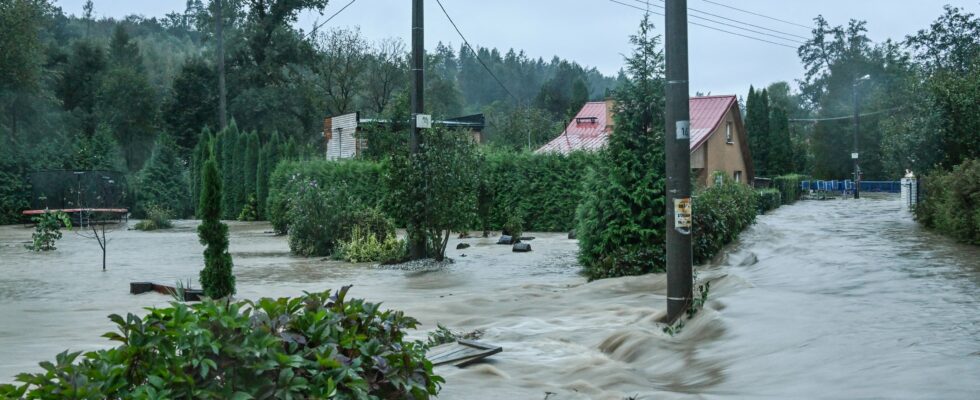Following the passage of storm Boris, Central Europe is under water. The Czech Republic, Poland, Romania, Austria and Slovakia are facing catastrophic floods caused by the weather depression. As of Sunday, September 15, the storm had already caused seven deaths, mass evacuations, power cuts and major disruptions to transport.
After four people died in Romania on Saturday, the death toll rose with a fifth victim in the country; a person drowned in Poland; and a firefighter dead in Austria. The Romanian Interior Ministry reported “more than 5,000 households and more than 15,000 people affected in the counties of Galati and Vaslui.” Romanian President Klaus Iohannis said: “We are once again facing the effects of climate change, which are increasingly present on the European continent, with dramatic consequences.”
In the Czech Republic, police reported four people missing: three from a car swept into a river in the northeastern town of Lipova-Lazne and a man swept away by a flooded stream in the southeast. The situation is particularly dire in the northeast, where much of the town of Opava has been evacuated because the river of the same name has overflowed. In the south, a dam has burst its banks and flooded towns and villages downstream.
The dramatic images of the floods show entire neighbourhoods flooded, streets submerged, residents rescued with armpit-deep water in Romania, sand dams to limit the rising waters. In south-western Poland, waters overflowed the dams in the towns of Glucholazy and Ladek Zdroj. Some 1,600 people had to be evacuated in the Klodzko region. The Polish authorities called in the army, which deployed ten boats to support the firefighters on the scene.
“The situation is very dramatic,” said the Prime Minister. Donald Tuskthis Sunday, after a meeting in Klodzko, a town partially flooded by the rise in the river level to 6.7 meters Sunday morning – well above the alert level of 2.4 meters – before falling slightly. This figure surpassed the record set during the heavy floods of 1997, which partially damaged the town and left 56 dead. In total, across the country, 19 localities and hundreds of people were rescued, the Polish authorities said.
Residents trapped
Winds of up to 146 kilometres per hour were recorded in southern Austria and precipitation of up to 170 litres of water per square metre was recorded in the north of the country. Rail traffic was interrupted overnight from Saturday to Sunday in parts of the country, while the metro in the capital Vienna was partially closed due to the bad weather. A total of 1,100 operations were carried out in the capital in recent hours.
The region of the country hardest hit by the storm, Lower Austria (northeast), has been classified as a natural disaster zone. With 1.72 million inhabitants, it is the most populated in the country after Vienna. “Hydrologists are predicting extremely heavy rain in the coming hours, up to 60 millimeters,” warned its deputy governor Stephan Pernkopf. “This is already causing and will cause massive flooding.”, “There were almost 5,000 interventions overnight in Lower Austria, where residents are currently trapped in their homes,” he told APA.
In Budapest, Hungary, authorities have raised their forecast for the Danube to rise in the second half of this week to more than 8.5 metres, approaching the record of 8.91 metres seen in 2013, as rains continue to fall in Hungary, Slovakia and Austria. “According to forecasts, one of the biggest floods in recent years is coming to Budapest, but we are prepared to deal with it,” Budapest Mayor Gergely Karacsony said. Heavy rains began early Friday and are expected to last at least until Monday in the Czech Republic and Poland.
